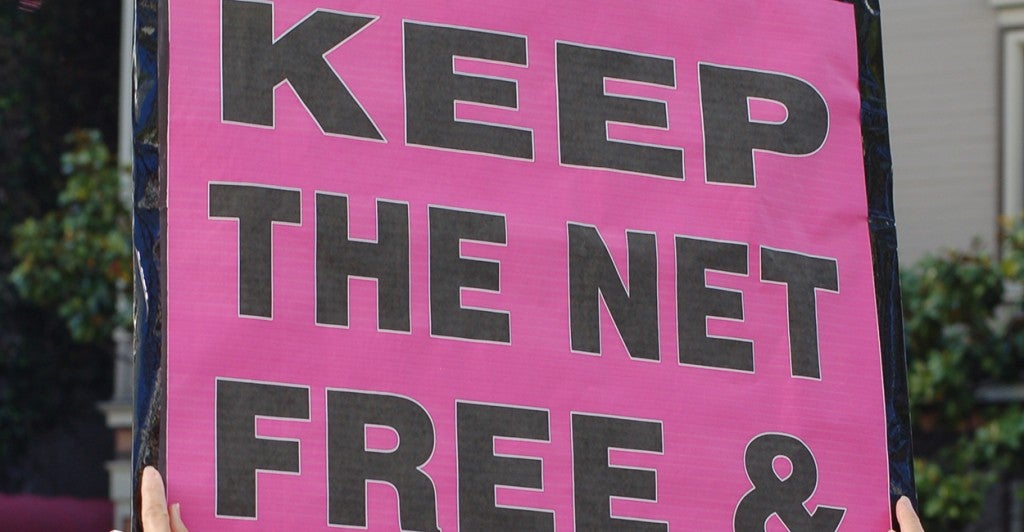Like Theodore Roosevelt, Barack Obama knows that the presidency makes an effective bully pulpit — even when you have historically low approval ratings.
He showed that earlier this month when — in an unusually deep wade into the decision-making process at the supposedly independent Federal Communications Commission — the president came out four-square in favor of imposing “common carrier,” or public utility, regulation on America’s Internet service providers.
He also voiced support for an outright ban on what is called “paid prioritization,” under which providers of Internet content could pay for premium service in the delivery of their material to consumers.
If the goal was publicity, the statement was a success. It put the FCC’s efforts to regulate Internet access on the front pages and depicted the president as standing firm (albeit against his own FCC chairman, who has been exploring more nuanced regulations).
In spite of its style points, the president’s policy fails on substance. Simply put, regulating the 21st century Internet under common carrier rules designed for railroads in the 19th century simply makes no sense.
With a stroke of a pen, the networks connecting millions of Americans to the World Wide Web would be subject to thousands of regulations, requiring them to obtain FCC permission for the most basic of decisions. The nimble Internet we know would be slowed to the speed of government and the innovation level of a local water company.
The president’s call for an outright ban on paid prioritization, often referred to as Internet “fast lanes,” is also troubling, if not surprising. In comments last month, he criticized “the notion that some folks can pay a little more and get better service.”
But premium pricing is a profoundly routine practice in most markets. From airline travel to theater tickets to package delivery, premium service offerings are an established, and essential, part of the business.
Worse, rather than protect innovation, the government rules pushed by Obama would chill it.
Nor would Obama’s regulations do much better at enhancing competition in the broadband marketplace. No barriers to entry are lowered, no costs reduced, no resources made more available.
Just days after Obama’s statement, AT&T — which made more capital investments in the U.S. economy last year than any other nonfinancial firm — announced that because of the increased risks of regulation, it would have to “pause” its spending on fiber-optic lines around the country. That means thousands of lost jobs and delayed high-speed service for American consumers.
The president’s extreme position on Internet regulation seemed to have taken even the agency’s chairman, Tom Wheeler, by surprise. In recent months, Wheeler has been riding a tiger, trying to reconcile demands by pro-regulation extremists and those advocating regulating under the current framework, and between those calling for a “fast lane” ban and those who would have the FCC review practices on a case-by-case basis.
That leaves the possibility that the FCC won’t be able to act at all to impose new regulation. That might be the best outcome of all.
Originally distributed by McClatchy-Tribune.
